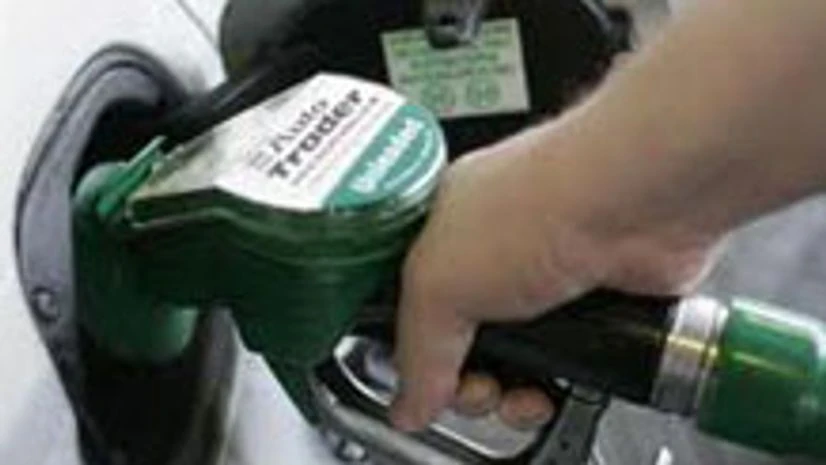For the July-September period this year, oil marketing companies (OMCs) might record consecutive quarterly profits, thanks to Brent crude oil prices falling below the psychological $100-a-barrel mark, analysts say. The decline in prices might force a cut in diesel prices, after about seven years of continued increases, easing inflation and the subsidy burden.
However, wiping out of underrecoveries might be delayed.
For the June quarter, Indian Oil Corporation, India's largest OMC, had reported a net profit of Rs 2,522.9 crore, against a net loss of Rs 3,093.2 crore in the year-ago period. While Bharat Petroleum Corporation registered a tenfold jump in profit at Rs 1,216 crore, Hindustan Petroleum Corporation clocked a profit of Rs 46 crore, against a loss of Rs 1,460 crore in the corresponding period last year.
"Complete elimination of diesel losses due to the latest crude price decline is a major positive, both for OMCs' financials and the economy as a whole, as this will ease the oil import bill and subsidies. While the government is yet to take a final call on decontrol, there is possibility of OMCs cutting prices in the coming review," said Salil Garg, director (corporates), India Ratings.
On Monday, the price of the benchmark Brent crude oil fell to a 14-month low of $99.59 a barrel because of sluggish demand from major importers, particularly China; this was the first time it fell below $100 a barrel since June last year.
The rupee has appreciated marginally against the dollar, bringing the retail prices of diesel close to market rates.
The price of diesel is determined from the refinery gate price, which is based on trade parity pricing, computed as the weighted average of the import parity price (weight of 80 per cent) and the export parity price (20 per cent weight). Currently, the price is arrived at on the basis of the daily free-on-board quotes of Arab Gulf prices, as published by Platts & Argus. According to OMCs, retail prices of diesel have not been cut in the last seven years, except for a marginal reduction on July 25, 2012.

Garg said the positive impact would depend on how long crude oil sustained below $100 a barrel and to what extent the benefit was passed on to consumers. "I do not see a full decontrol happening in the immediate future. The government might want to continue to be involved in pricing decisions. In any case, the impact of the current crude price decline will come with a lag," he said.
The United Progressive Alliance government had decided to raise diesel prices in monthly instalments of 50 paise until retail prices were aligned with market rates, and could be deregulated. The move has narrowed diesel subsidy to an estimated Rs 19,584 crore from Rs 62,837 crore in 2013-14.
A final decision on deregulation will be taken after consultations with the finance ministry. The oil ministry is understood to have prepared a Cabinet note on deregulation, which might be placed before the Union Cabinet soon.
Until last year, diesel subsidy accounted for 45 per cent of the overall fuel subsidy.
For this financial year, the government had budgeted for a petroleum products subsidy of Rs 63,000 crore and gross underrecoveries of Rs 1,04,000 crore, based on an average Indian basket of crude oil price of $105-110 a barrel. The latest fall in crude oil prices will mean an easing of the burden. Currently, OMCs lose Rs 195 crore a day on subsidised sales of diesel, liquefied petroleum gas and kerosene. With a continued decline in global crude oil prices and monthly price rises, diesel losses have narrowed to eight paise a litre.

)
